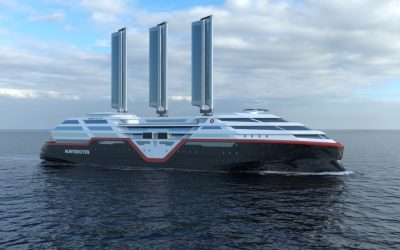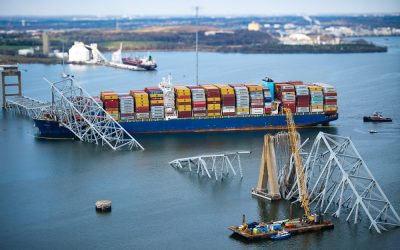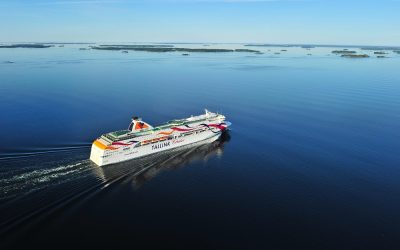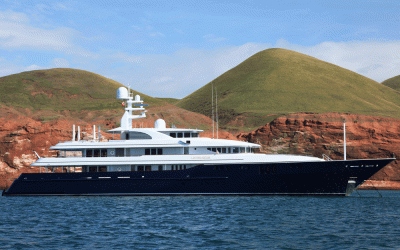Ludmila Seppälä, business development director, Cadmatic
The conference on Computer Applications and Information Technology in the Maritime Industries (COMPIT) is a significant international event that serves as a forum for professionals, researchers, and experts in the maritime sector. Since its inception, COMPIT has played a crucial role in providing an insightful exchange of knowledge and innovative ideas concerning the maritime industry’s application of information technology (IT) and computer-based systems.
Participants at COMPIT 2023, held on 23-25 May at the Abbey Drübeck in Drübeck, Germany, hailed from various maritime industry sectors, including ship design firms, shipping companies, classification societies, software vendors, research institutions, and universities. The conference brought together these diverse perspectives to drive the development of novel solutions that can tackle the challenges faced by the maritime industry, thus enhancing efficiency, sustainability, and safety in operations.
This year, COMPIT included a broad spectrum of issues, focusing primarily on digitalisation, sustainability, and advanced software solutions in maritime applications. Traditionally, the first two days of the conference include topics revolving around design, simulation, and engineering, and the last day is focused on operations at sea.
At COMPIT 2023, the first day included presentations on the topics of collaboration platforms for vessel design, the selection of the best tools for ship design, the use of data from design to operations, model-based systems engineering methodology, OCX standard for data exchange and classification approval, CFD calculations and optimisation, practical applications of digital twins and calculation models for ice building.
On the second day, discussions revolved around integrated ship design and data management, the evolution of ship design, applicability research on using ChatGPT in ship design, European project SEUS for development of computational tools in shipbuilding, decarbonisation projects, use of advanced simulation, route optimisation and the overall use of IT solutions in shipbuilding.
On the last day, discussions were opened about the AI-based tools to guide vessel’s limits in a rough sea, route optimisation for sail-assisted vessels based on environmental factors, machine learning applications for driving behaviours of electric ferries, 3D scanning for obtaining 3D hull models, use of drones to perform a hull survey, digital twin for propulsion of polar vessels and much more.
Real-world applications
One of the essential aspects of COMPIT is its emphasis on real-world application and practical relevance. The presentations and discussions often revolve around innovative solutions and their implications in actual operational settings. This pragmatic approach encourages participants to explore and understand the practical challenges and benefits of adopting these advanced technologies. In addition to presentations and discussions, COMPIT provides ample opportunities for networking and collaboration. This global gathering of maritime professionals fosters an environment of collaboration, enabling the exchange of ideas and paving the way for potential partnerships.
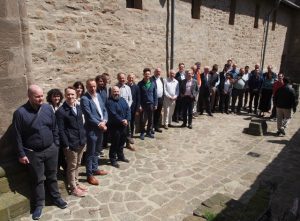
COMPIT 2023 delegates. Source: Hans Payer
Over the years, COMPIT has proven itself as an essential platform for keeping up with the rapidly changing landscape of technology in the maritime industry. COMPIT is not just about current technology; it’s also a venue for forecasting and discussing future trends and demystification for hype. In conclusion, COMPIT is more than just a conference – it catalyses technological innovation in the maritime industry. It encourages knowledge sharing, fosters collaboration, and promotes the adoption of advanced computer technologies, propelling the maritime industry into a more efficient and sustainable future.
The proceedings for this year’s conference can be found at: data.hiper-conf.info/compit2023_drubeck.pdf

